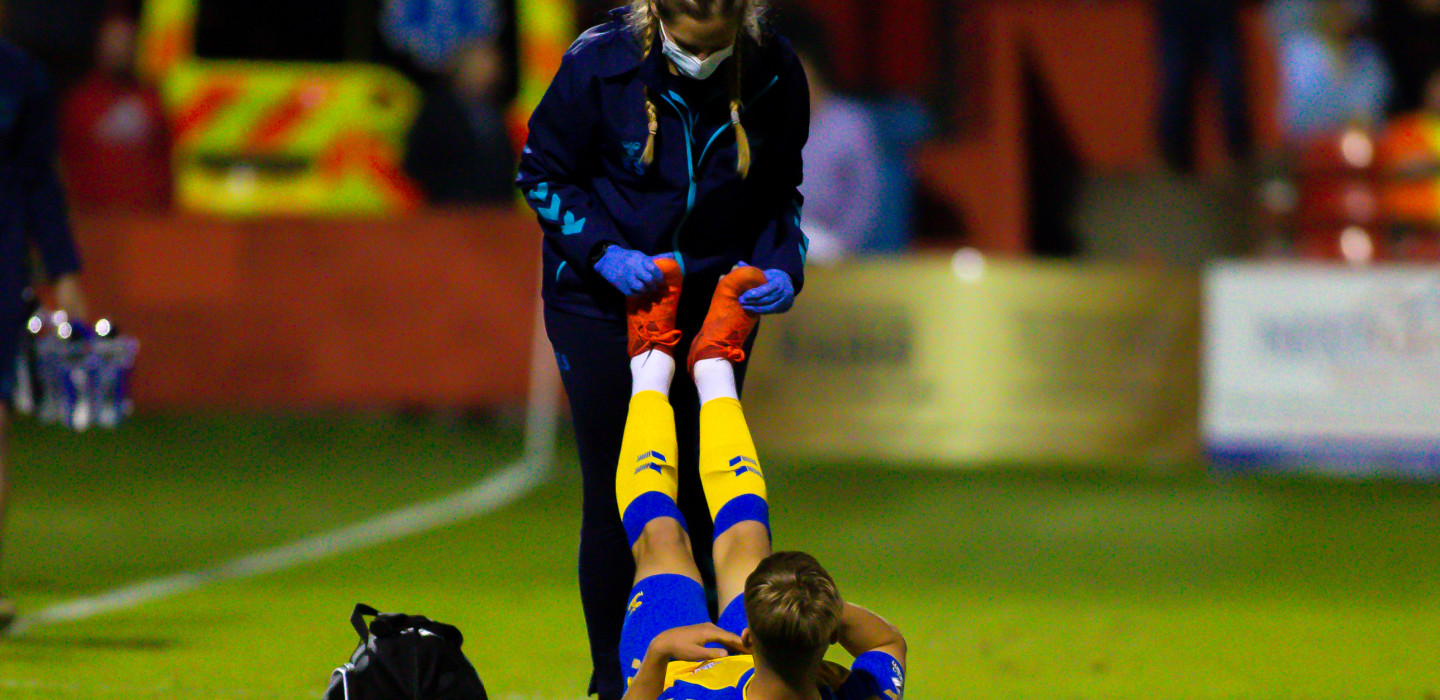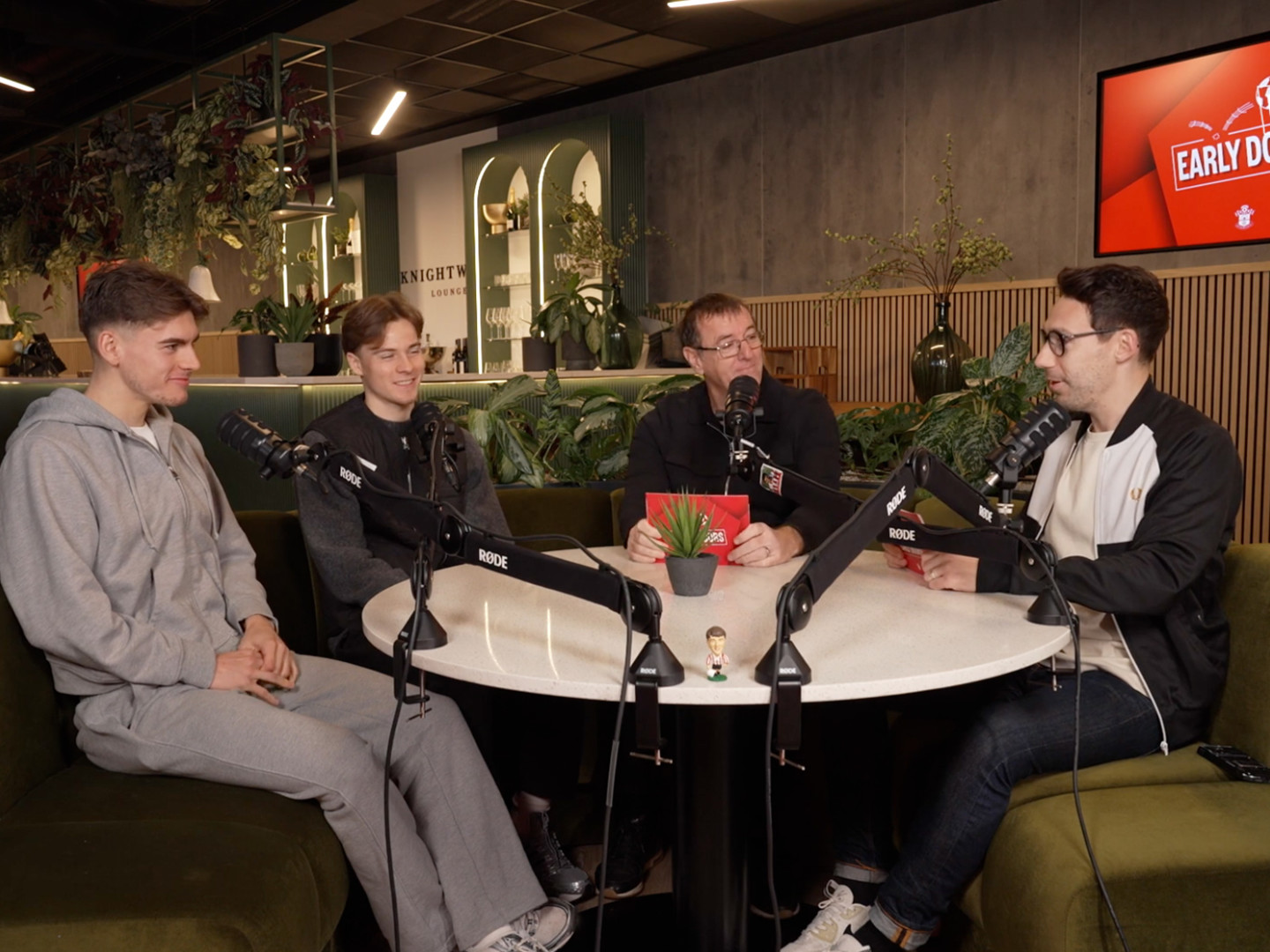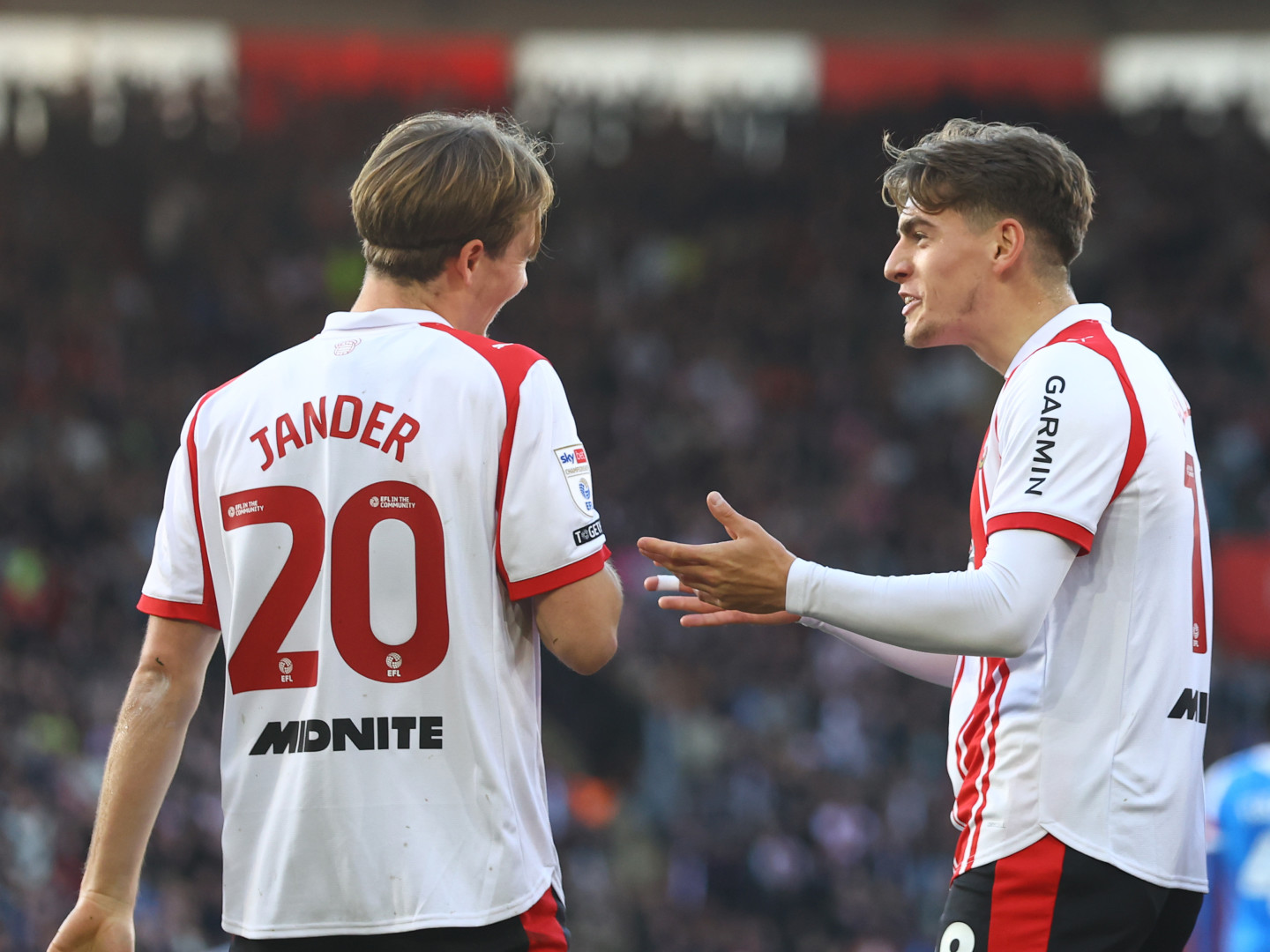International Day of Women in Science: Harriet and Lizzie

Southampton Football Club is marking International Day of Women and Girls in Science today - an opportunity to appreciate the critical role women play in the science and technology industries.
Hear from four women who work across our Football Development Sports centre based at Staplewood Training Ground to talk about their aspirations, motivations and roles at Southampton Football Club.
In the first part of two, find out more about Data Analyst Harriet Eastham and the B Team’s Lead Physiotherapist Lizzie Sharp as they discuss their journey towards working for a Premier League football club. Check back next week to hear from the club's Performance Psychologist and one of our Sport Science Placement Students.
Don’t forget to take a look at our careers page to find all the latest vacancies here.
Tell us about your role?
I work within the Player Insights Department and on the football side of the business. We’re the department responsible for providing insight relating to scouting and recruitment and high performance of our players. It’s a mix of things - sport science, medical data, psychological data, data relating to players.
Tell us about your background and your journey into science?
I've always been quite inquisitive as a kid and I've always liked asking the questions of why. I went to Loughborough University to study English & Sport Science - I figured out that sport science was probably more my bag along with data analytics.
I’ve been into football since I was in primary school and joined the local team, where I played for them for a few years. I absolutely loved playing football and what it can provide you.
After university I worked for a sport publishing company as a Marketing Analyst before joining the club as a Research & Insights Executive.
My job now is very much to be the communicator between all the data we collect and those that will use it. It’s a balance between speaking to those end users to make sure that they've got what they want and that we're planning for the future.
Can you tell us about an achievement in your work that you're particularly proud of?
Last year I built a tabular model, which is essentially a data source that combines loads of different data sources into one. So that means that we can then look at different data points that may not have been mixed before.
Secondly, it's probably a few months ago when I was appointed on the board for the Girls and Women's program. It something I’m really passionate about and, having grown up in the girls and women's game, it's great to be involved.
How did you get into Physiotherapy?
I remember I had injured my ankle when I was young and saw a physio. I remember telling them that I was going to be a physio as well, so obviously knew from a young age.
I was always into a lot of science subjects and when I got to A-Level I chose Biology, Chemistry and Psychology and I knew then that I wanted to do physio at uni.
I went to University of Birmingham to study and then I worked in the NHS for a couple of years doing all the foundation work like seeing the different areas of physio, seeing what I really enjoyed.
I knew that I always had this interest in sports, so I did a master’s in Sports Medicine at Queen Mary's in London and then that’s when I then applied for roles in football.
What does a normal day look like for you?
When the squad are training we will have breakfast together and I'll check through anyone that's had a problem overnight or in training the previous day. We’ll meet with the coaches and go through how we want to prepare the players for the training sessions of the day and they'll start with me for half an hour. We call it pre-activation and that will be based around different themes, depending on what day of the week it is, how close we are to a game or what the content of training is going to be.
I'll spend that first half of the day with the squad and then they'll go out, warm up and train, and then I'll spend the rest of the day with the injured players.
What is it has been your biggest achievement within your work?
I felt was a real sense of achievement with some of the rehab projects that we've done, particularly like some of the long term knee injuries. I've worked with Nathan Tella with his ACL reconstruction and obviously everyone has seen that success story where he's gone on then and broken into the first team and stayed there, which is really rewarding thing to have known to have been part of that.
I remember getting to the end of that nine months and thinking that was a really big achievement to do it in that time frame and for him to come back in the way that he did.
Then following on from him with Marcus Barnes, who was another serious knee injury. I think again, I just felt that that rehab went really well and he went on and signed for Elite Club so I think when you're working with players and you understand what they're trying to work towards, that's what gives you a sense of achievement with the work that you're doing.

